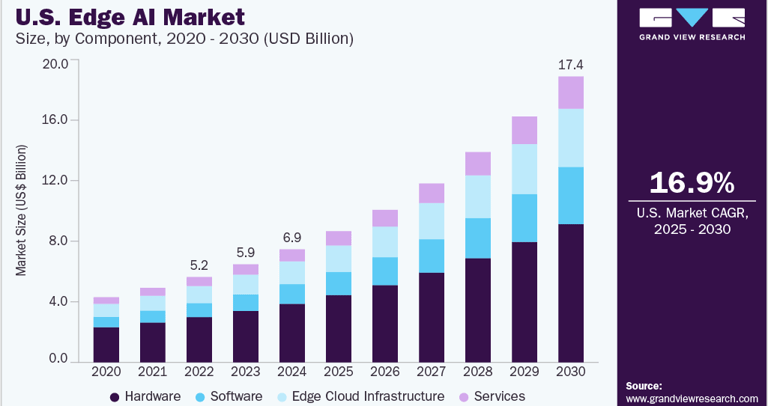BND Scope: Issue 3 – U.S. Economy: Investing Amid Crossroads: Caution, Cash, and New Corridors
From Moody’s downgrade and Buffett’s $347B cash reserve to record-breaking Gulf investments, June kicks off with a delicate balance between caution and opportunity.
BND SCOPE
5/31/20253 min read


The first days of June signal a new wave of global economic and political realignments. Moody’s credit downgrade, surging interest from Arab and Asian investors in U.S. assets, the accelerating pace of AI infrastructure, and Warren Buffett’s record-breaking cash reserve… Each development brings us back to a familiar question: Is this uncertainty—or opportunity? Let’s explore the landscape together.
On May 31st, Moody’s downgraded the U.S. credit rating from Aaa to Aa1, joining Fitch and S&P in formally questioning the country’s fiscal stability.
The rationale:
Rising debt-to-GDP ratio and growing interest burden
Lack of structural reform
Persistent political gridlock that prevents long-term solutions
Although Treasury Secretary Scott Bessent dismissed the move as a “lagging reaction,” markets moved quickly. 10-year Treasury yields surged above 4.56%.
According to Moody’s, interest payments could reach 30% of federal revenue by 2035.
As the U.S. population ages, healthcare infrastructure is entering a powerful growth cycle:
2024 market size: $1.32 trillion
2030 forecast: $1.87 trillion
By 2030, over 20% of U.S. residents will be aged 65+
Outpatient medical buildings report 92.8% occupancy
Major REITs like Welltower, Ventas, and Healthpeak are consolidating the sector with long-term leases and institutional partnerships.
Global Capital Flow: Gulf and Asia Double Down on U.S.
Moody’s Downgrade: A Warning or a Belated Reality Check?
President Trump’s foreign investment diplomacy is beginning to bear fruit. Recently announced initiatives include:
UAE pledged $1.4 trillion in investments over the next 10 years, targeting AI, energy, and advanced tech sectors
Qatar allocated $10 billion for upgrades to U.S. military bases and signed $42 billion in defense contracts
Nippon Steel raised its offer for U.S. Steel to $14 billion, along with a $4 billion greenfield facility
These moves reflect Trump’s “America First Investment Policy”, which incentivizes capital from allies while restricting access to strategic sectors (like AI and biotech) for geopolitical rivals.
Artificial Intelligence & Edge Computing: The Digital Infrastructure of a New Era
The U.S. Edge AI market reached $6.89 billion in 2024 and is projected to grow by 16.9% annually through 2030.
Why it’s accelerating:
Demand for real-time data analysis
National security–driven digital infrastructure investments
Major partnerships like Qualcomm-Aramco and Synaptics-Google driving industrial AI innovation
This is more than a tech trend—it’s a strategic pillar for economic sovereignty and data security.
Healthcare & Senior Living: The Quiet Star of Institutional Investment
According to Realtor.com, entry-level home prices have surpassed $1 million in 28 U.S. states, with 77 cities in California alone exceeding this mark.
Median first-time homebuyer age has climbed to 38
Many young buyers are delaying homeownership
Multi-generational living and second-tier cities are gaining traction
🏠 Strategic investors are shifting focus from coastal to inland markets, from homes to condos.
The Million-Dollar “Starter” Home
June opens with contradiction: record foreign investment, strong AI infrastructure growth, and yet a sovereign credit downgrade. In this environment, those who can take selective risks and think strategically are most likely to thrive.

At BND Consulting, we guide entrepreneurs and investors through transition with clarity and foresight. Join us on this journey.
Buffett’s $347 Billion Standby: “Opportunities Rarely Come—But When They Do...”
Under Warren Buffett’s leadership, Berkshire Hathaway reached a record cash reserve of $347 billion in Q1 2025. The company has been a net seller of equities for 10 consecutive quarters.
Buffett’s message is clear:
“Opportunities rarely come. When they do, be ready.”
What’s driving the wait?
Overvaluation: Buffett sees many current prices, particularly in tech, as unsustainable.
High-interest environment: With Treasury yields at 4.5%, risk-free returns are more appealing.
Geopolitical and macro risks: U.S.-China tensions, domestic political shifts, and the credit downgrade all contribute to cautious positioning.
Buffett followed a similar approach before major market downturns in 2008, 2018, and 2022. Today’s posture signals that he’s not forecasting a crash—but is waiting for the market to offer better terms.
Will that opportunity come soon? And will America’s borrowing power allow it?
Final Thoughts


1,32
Trilyon $
2024
1,87
Trilyon $
2030 Beklentisi
*Sağlık Sektörü Büyüklüğü
Consulting
Join
info@bnd.consulting
+1 (832) 270-5239
© 2024. All rights reserved.

800 Bonaventure Way Ste 116 Sugar Land TX 77479
